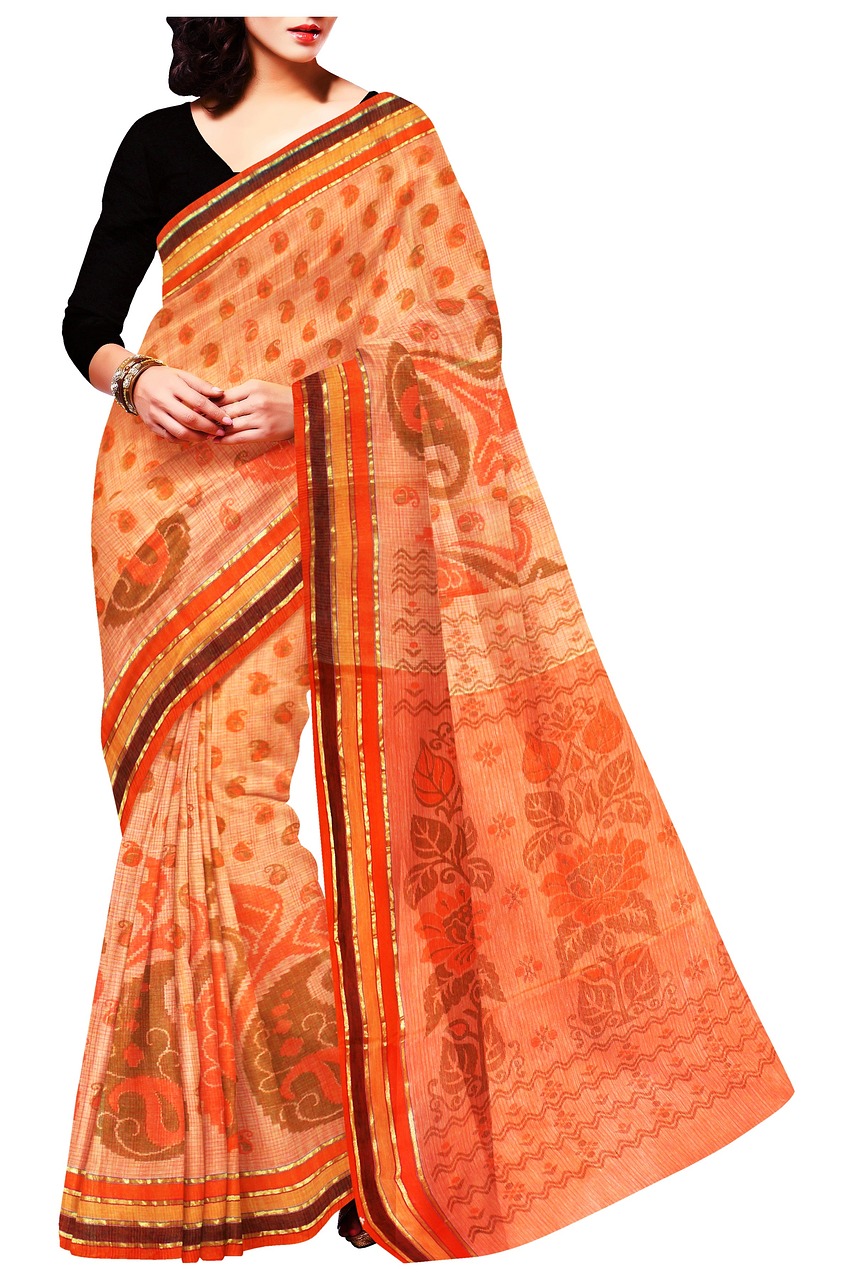
Sarees are timeless garments that embody the rich heritage and culture of India. Among the many types of sarees, silk and cotton are the two most popular choices. Each has its unique charm, catering to different occasions, climates, and personal preferences. If you’re trying to decide between silk sarees and cotton sarees, this guide will help you understand their differences and select the one that suits you best.
Silk Sarees: The Epitome of Elegance
1. Characteristics of Silk Sarees
Luxurious Texture: Silk sarees are smooth, glossy, and exude opulence.
Rich Colors: The fabric absorbs dyes beautifully, resulting in vibrant and deep hues.
Variety: Available in numerous types such as Kanjeevaram, Banarasi, Tussar, and Mysore silk.
Durability: High-quality silk sarees are long-lasting and often passed down as heirlooms.
2. Occasions for Wearing Silk Sarees
Silk sarees are ideal for grand occasions such as:
Weddings and receptions
Religious ceremonies
Festivals like Diwali, Pongal, and Durga Puja
Formal events and parties
Their regal appearance makes them a symbol of sophistication and tradition.
3. Advantages of Silk Sarees
Aesthetic Appeal: Instantly elevates your look with a touch of grandeur.
Comfort: Despite their richness, silk is lightweight and comfortable to wear for extended periods.
Versatility: Pairs well with traditional gold or diamond jewelry.
4. Drawbacks of Silk Sarees
Cost: Silk sarees are more expensive due to the intricate weaving and high-quality fabric.
Maintenance: Requires careful handling, dry cleaning, and proper storage to avoid damage.
Seasonal Suitability: May feel heavy or uncomfortable in hot and humid weather.
Cotton Sarees: The Essence of Comfort
1. Characteristics of Cotton Sarees
Lightweight and Breathable: Cotton is soft, airy, and perfect for everyday wear.
Matte Finish: Offers a simple yet elegant look, with subdued colors and patterns.
Variety: Includes regional specialties like Tant, Jamdani, Chanderi, and Kota Doria.
Eco-Friendly: Made from natural fibers, cotton sarees are biodegradable and sustainable.
2. Occasions for Wearing Cotton Sarees
Cotton sarees are suitable for:
Daily wear, especially in warm climates
Casual outings and office wear
Cultural events and informal gatherings
Religious functions requiring simplicity
3. Advantages of Cotton Sarees
Comfort: Ideal for hot and humid climates, allowing your skin to breathe.
Affordability: More budget-friendly than silk sarees.
Easy Maintenance: Can be hand-washed or machine-washed, making them convenient for regular use.
4. Drawbacks of Cotton Sarees
Wrinkling: Cotton sarees tend to wrinkle easily, requiring frequent ironing.
Limited Glamour: May lack the opulence needed for grand occasions.
Shrinkage: Poor-quality cotton may shrink after washing if not pre-shrunk.
Choosing the Right Saree for You
Your choice between silk and cotton sarees depends on several factors:
1. Occasion
Opt for silk sarees for weddings, formal events, and festive celebrations.
Choose cotton sarees for daily wear, office settings, or informal gatherings.
2. Climate
Silk sarees are suitable for cooler climates or air-conditioned settings.
Cotton sarees are perfect for summer and humid conditions.
3. Budget
If you’re looking for an affordable option, cotton sarees are a better choice.
For a more luxurious and long-lasting investment, silk sarees are worth the splurge.
4. Personal Style
Go for silk sarees if you prefer bold, vibrant designs with a rich aesthetic.
Choose cotton sarees if you appreciate minimalism and understated elegance.
Caring for Your Sarees
Silk Saree Care Tips
Always dry clean silk sarees.
Store them in muslin or cotton bags to protect them from dust and moisture.
Avoid direct sunlight to prevent fading.
Cotton Saree Care Tips
Wash with mild detergent to retain the color and texture.
Iron regularly to maintain a crisp look.
Store folded and stacked to prevent creases.
Conclusion
Silk and cotton sarees each have their unique appeal, making them indispensable in every woman’s wardrobe. Silk sarees are synonymous with grandeur and tradition, ideal for special occasions and celebrations. On the other hand, cotton sarees are the epitome of comfort and simplicity, perfect for daily wear and casual outings.
Ultimately, the choice between silk and cotton sarees boils down to your personal preferences, the occasion, and the climate. Whether you choose the opulent elegance of silk or the breezy comfort of cotton, both types of sarees allow you to celebrate the timeless beauty of Indian fashion.



